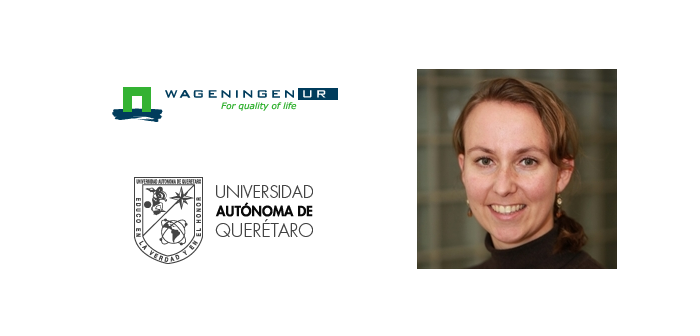Dutch and Mexican scientists are about to begin studying how efficiently algae can extract nutrients from the residual water with the prospect of securing significant production benefits for poultry producers.
The theory is that algae, grown on reused water in Mexico, will become naturally rich in omega-3 fatty acids, making them an excellent raw material for inclusion in chicken feed.
According to research leader, Dorinde Kleinegris, the algae might also contain components which have a “positive impact on the resistance of chickens” and could therefore increase their lifespan.
“The eggs produced would also contain more omega-3, which adds to their market value,” said Ms Kleinegris (pictured above), a specialist mirco-algae scientist at Wageningen University in the Netherlands.
“Another benefit of the algae is that they contain a high level of protein, making them a good alternative for soya. We are therefore also working with our partners to see how we can build an economically and technically feasible production chain.”
The research programme, which is being carried out in partnership with the Universidad Autónoma de Querétaro in Mexico, was motivated by the country’s general shortage of water, alongside the fact that water in Mexico can only be reused a few times before it becomes too saline.
“We want to use this saline water for algae, some varieties of which take well to salt,” said Ms Kleinegris, adding that the algae in question are extremely efficient at removing the last remaining nutrients for the water source.
The research is due to start this month (April) in an area northwest of Mexico City.
“We will be studying how the algae grow, whether an additional purification stage is needed, and how many nutrients they extract,” said Ms Kleinegris. “If sufficient biomass is produced, we will ship the dry biomass to Wageningen to study how chickens digest the algae, how much algae we should feed them, and how many nutrients eventually end up in the eggs.”


